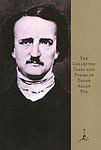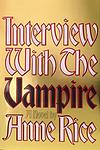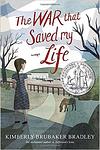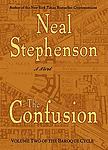The Greatest American, German "Fiction, Europe" Books of All Time
Click to learn how this list is calculated.
This list represents a comprehensive and trusted collection of the greatest books. Developed through a specialized algorithm, it brings together 305 'best of' book lists to form a definitive guide to the world's most acclaimed books. For those interested in how these books are chosen, additional details can be found on the rankings page.
Genres
The "Europe" category for books encompasses a wide range of literature that explores the history, culture, politics, and geography of the continent. It includes works of fiction, non-fiction, and memoirs that delve into the diverse and complex societies of Europe, from the ancient civilizations of Greece and Rome to the modern-day European Union. This category also covers books that examine the impact of European colonialism and imperialism on other parts of the world, as well as the continent's role in global affairs. Overall, the "Europe" category offers readers a rich and varied selection of books that illuminate the many facets of this fascinating and influential region.
Countries
Date Range
Reading Statistics
Click the button below to see how many of these books you've read!
Download
If you're interested in downloading this list as a CSV file for use in a spreadsheet application, you can easily do so by clicking the button below. Please note that to ensure a manageable file size and faster download, the CSV will include details for only the first 500 books.
Download-
1. The Portrait of a Lady by Henry James
This classic novel explores the life of a young, independent American woman who inherits a large amount of money and moves to Europe, where she falls into a manipulative and oppressive marriage. The story delves into themes of personal freedom, responsibility, and betrayal, as the protagonist navigates the complexities of high society, love, and the consequences of her choices.
The 63rd Greatest Book of All Time -
2. The Complete Tales and Poems of Edgar Allan Poe by Edgar Allan Poe
This collection brings together all of the author's most famous works, including poems, short stories, and novellas. Known for his macabre and gothic storytelling, the author's works are filled with themes of death, love lost, and human frailty. Notable inclusions are the haunting poem "The Raven," the chilling stories "The Tell-Tale Heart" and "The Fall of the House of Usher," and his only complete novel, "The Narrative of Arthur Gordon Pym."
The 122nd Greatest Book of All Time -
3. Gravity's Rainbow by Thomas Pynchon
Set during the end of World War II, the novel follows Tyrone Slothrop, a lieutenant in the U.S. Army, as he tries to uncover the truth behind a mysterious device, the "Schwarzgerät", that the Germans are using in their V-2 rockets. The narrative is complex and multi-layered, filled with a vast array of characters and subplots, all connected by various themes such as paranoia, technology, and the destructive nature of war. The book is known for its encyclopedic nature and its challenging, postmodernist style.
The 183rd Greatest Book of All Time -
4. Death in Venice by Thomas Mann
"Death in Venice" is a novella that explores the life of Gustav von Aschenbach, a famous writer in his early fifties who embarks on a journey to Venice after experiencing a creative block. In Venice, he becomes obsessed with a beautiful Polish boy named Tadzio, whom he sees at the hotel where he is staying. Aschenbach's fascination with Tadzio becomes a metaphor for his own internal struggle with his repressed passions and his need for aesthetic beauty. The story culminates in Aschenbach's death as a cholera epidemic sweeps through Venice. His demise symbolizes the destructive power of his unfulfilled longing and his ultimate surrender to his repressed desires.
The 462nd Greatest Book of All Time -
5. Interview with the Vampire by Anne Rice
The novel is a dark and atmospheric tale of a centuries-old vampire, Louis, who shares his life story with a young reporter. He recounts his transformation into a vampire by the charismatic and ruthless Lestat, their complex relationship, and their encounters with other supernatural beings. The narrative explores themes of immortality, loss, identity, and the human desire for love and companionship. The book is known for its rich detail and its philosophical and historical depth.
The 541st Greatest Book of All Time -
6. The Clan of the Cave Bear by Jean M. Auel
This novel tells the story of a young girl named Ayla who, after an earthquake kills her family, is adopted by a tribe of Neanderthals known as the Clan. Ayla struggles to fit in with the Clan due to her physical differences and advanced cognitive abilities. Despite these challenges, she learns their customs and ways of life, and even becomes the apprentice of the Clan's medicine woman. The story explores themes of survival, acceptance, and the clash between cultures and species.
The 812th Greatest Book of All Time -
7. Daisy Miller by Henry James
"Daisy Miller" is a novella that explores the social differences between American and European society in the late 19th century. The story follows a young, affluent American woman named Daisy Miller, who defies societal norms while traveling in Europe. Her flirtatious behavior and disregard for European customs create a scandal among the upper-class expatriate community, particularly catching the attention of a young American man who is both attracted to and repulsed by her nonconformity. Ultimately, Daisy's refusal to conform to societal expectations leads to her downfall.
The 1437th Greatest Book of All Time -
8. Flowers in the Attic by V. C. Andrews
The novel focuses on four siblings who, after the tragic death of their father, are locked away in the attic of their cruel grandmother's mansion as their mother tries to inherit the family fortune. The children endure years of abuse and neglect, and as their mother's visits become less frequent, they must rely on each other for survival. Over time, they form a deeply complex and troubling relationship, leading to a shocking and devastating climax.
The 2191st Greatest Book of All Time -
9. Doomsday Book by Connie Willis
In this science fiction novel, a young historian undertakes a time-travel journey to the 14th century for academic research, only to find herself stranded amidst the onset of the Black Death. As she navigates the challenges of medieval England, her colleagues in the 21st century grapple with a deadly influenza pandemic, complicating efforts to retrieve her. The narrative weaves between the past and the present, exploring themes of human resilience, the universality of suffering across time, and the ethical implications of time travel, all while the historian and her contemporaries confront mortality, history, and their own personal crises.
The 2401st Greatest Book of All Time -
10. Vertigo by W. G. Sebald
"Vertigo" is a complex narrative that combines elements of fiction, travelogue, biography, and autobiography. The novel is divided into four sections, each exploring the life and works of different historical figures such as Stendhal, Kafka, and Casanova, as well as the author's own experiences. The narrative is characterized by its exploration of themes such as memory, identity, and the past, often blurring the lines between fact and fiction. The book is also notable for its distinctive style, featuring long, meandering sentences and a lack of traditional plot structure.
The 3613th Greatest Book of All Time -
11. The Burden of Our Time by Hannah Arendt
"The Burden of Our Time" is a profound exploration of totalitarianism and the nature of power. The author delves into the rise of authoritarian regimes in the 20th century, particularly focusing on the Nazi and Stalinist systems. The book examines the socio-political conditions that enable such regimes to seize power, and the mechanisms they use to maintain control. It also presents a philosophical analysis of the human condition, exploring themes of freedom, authority, and the public and private realms of life.
The 3671st Greatest Book of All Time -
12. The Moon is Down by John Steinbeck
The book tells the story of a small coastal town in Northern Europe that is occupied by an invading, unnamed army. The town's mayor, a central figure in the story, attempts to maintain order and dignity in the face of the occupation, while the townspeople begin to form a resistance against the invaders. The narrative explores the tensions and moral complexities of war, occupation, and resistance, as well as the human capacity for dignity and bravery under oppressive circumstances.
The 4933rd Greatest Book of All Time -
13. Measuring the World by Daniel Kehlmann
"Measuring the World" is a historical novel that reimagines the lives of two brilliant and driven men, German mathematician Carl Friedrich Gauss and German geographer Alexander von Humboldt. The narrative alternates between the two protagonists, exploring their individual quests to quantify and understand the world. Gauss, a child prodigy from a poor family, rises to become one of the greatest mathematicians in history, while Humboldt, a wealthy and ambitious explorer, embarks on a five-year journey across South America. Their paths converge in a humorous and touching manner, highlighting the contrast between their approaches to knowledge and discovery.
The 5023rd Greatest Book of All Time -
14. Against the Day by Thomas Pynchon
The novel is a sprawling epic that spans the period from the 1893 World's Fair to the years following World War I. It follows the stories of several characters including the anarchist Traverse family, a group of balloonists, a detective, and a mathematician. The book explores themes of anarchism, capitalism, and technology, and incorporates elements of science fiction, adventure, and historical fiction. It is noted for its complex structure and dense, multifaceted narrative.
The 5702nd Greatest Book of All Time -
15. The Years of Rice and Salt by Kim Stanley Robinson
The book is an alternate history novel that explores a world in which the Black Death plague of the 14th century was far more lethal to Europeans, nearly wiping them out. As a result, world history is dramatically reshaped: Islamic and Buddhist societies emerge as the dominant global powers, leading to vastly different technological, cultural, and social developments. The narrative spans several centuries, following a group of characters who are reincarnated into various lives and roles, allowing the reader to experience the evolution of this alternate world through their interconnected stories. The novel delves into themes of history, religion, technology, and human nature, all while imagining a world both familiar and strange, shaped by different forces and ideas than those that have shaped our own history.
The 6228th Greatest Book of All Time -
16. Collected Short Stories by Edith Wharton
This anthology brings together a diverse collection of narratives that delve into the complexities of human nature, social mores, and the subtle intricacies of personal relationships during the turn of the 20th century. The stories, penned by a prominent figure in American literature, often explore the lives of the upper-class society and the constraints imposed by its rigid conventions. With keen psychological insight and a sharp eye for detail, the author weaves tales that reveal the underlying tensions and hypocrisies of the time, while also highlighting the struggles of individuals—particularly women—as they navigate the social landscape of their era.
The 7193rd Greatest Book of All Time -
17. Empire Of Cotton: A Global History by Sven Beckert
"Empire of Cotton" by Sven Beckert is a comprehensive global history of cotton, exploring its impact on the world economy, politics, and society from the 18th century to the present day. Beckert argues that cotton played a crucial role in the development of capitalism, colonialism, and imperialism, and that its production and trade were intimately linked to the exploitation of labor, the growth of slavery, and the rise of industrialization. The book offers a fascinating and thought-provoking perspective on the complex and often violent history of cotton and its enduring legacy in the modern world.
The 8595th Greatest Book of All Time -
18. Quicksilver by Neal Stephenson
"Quicksilver" by Neal Stephenson is the first book in "The Baroque Cycle" trilogy, set in the late 17th and early 18th centuries. The story follows the life of Daniel Waterhouse, a member of the Royal Society, as he navigates through a world of scientific discoveries, political intrigue, and personal relationships. From the coffeehouses of London to the court of Louis XIV in Versailles, the novel weaves together historical events and fictional characters to create a sprawling epic that explores the birth of modern science and the clash between old and new worldviews.
The 9391st Greatest Book of All Time -
19. The War That Saved My Life by Kimberly Brubaker Bradley
Set during World War II, this heartwarming novel tells the story of Ada, a young girl with a clubfoot who has been locked away and mistreated by her mother her entire life. When London is evacuated, Ada and her younger brother Jamie are sent to the countryside, where they find refuge with Susan, a woman who reluctantly takes them in. As Ada learns to trust and love for the first time, she discovers her own strength and resilience, ultimately finding freedom and a sense of belonging in the midst of war.
The 10142nd Greatest Book of All Time -
20. The Baroque Cycle by Neal Stephenson
The Baroque Cycle is an expansive historical fiction series that weaves together a rich tapestry of themes including science, politics, philosophy, and adventure during the late 17th and early 18th centuries. The narrative follows an eclectic cast of characters, ranging from natural philosophers and mathematicians to pirates and nobles, as they navigate the complex socio-political transformations of the Enlightenment era. The series delves into the origins of modern finance, the scientific revolution, and the geopolitical power shifts of the time, all while exploring the intricate interplay between the emerging modern world and the intricate, ornate culture of the Baroque period.
The 10672nd Greatest Book of All Time
Reading Statistics
Click the button below to see how many of these books you've read!
Download
If you're interested in downloading this list as a CSV file for use in a spreadsheet application, you can easily do so by clicking the button below. Please note that to ensure a manageable file size and faster download, the CSV will include details for only the first 500 books.
Download


















